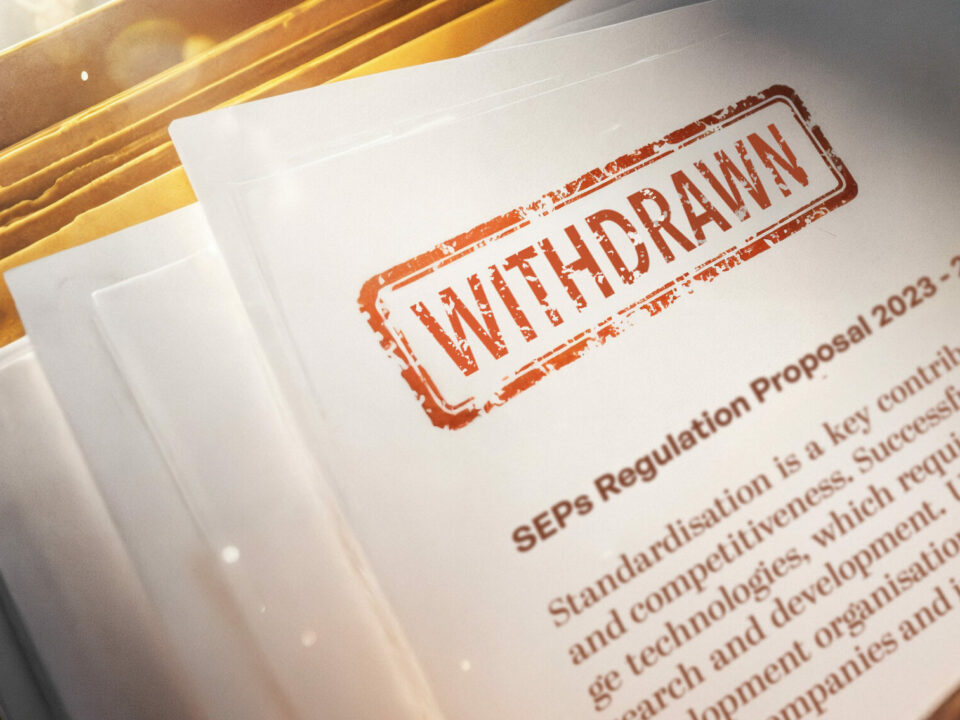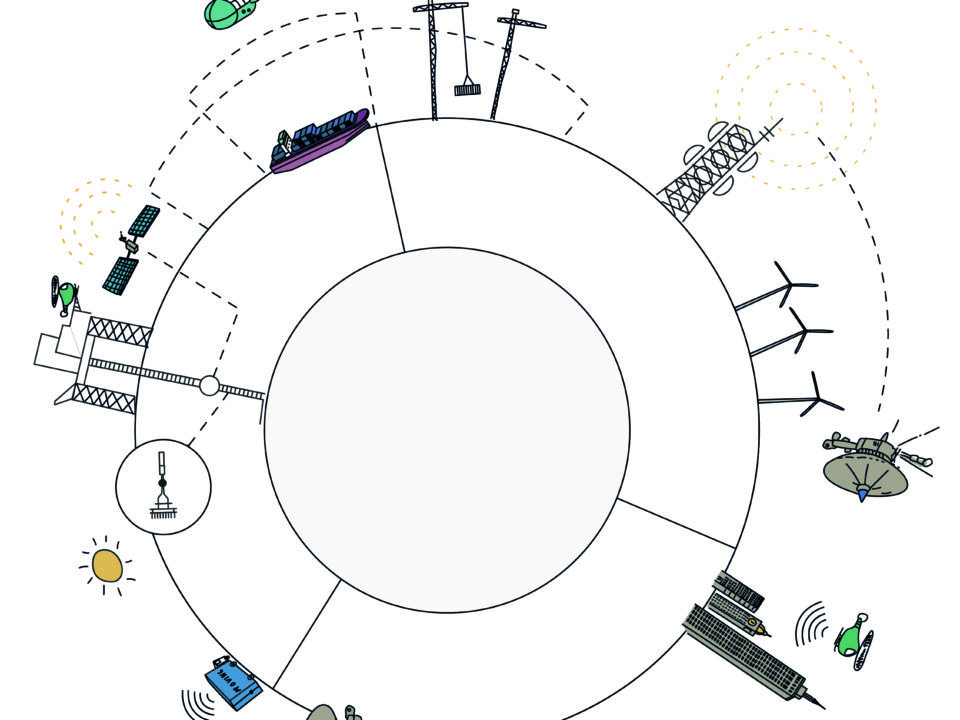A (bad) solution in search of a problem – Part III – SEPs Licensing Not a Pressing Problem for SMEs
Is SEP licensing a pressing problem for European SMEs? Quick answer: Apparently not.
In our previous post, we explained that while the European Commission claims its proposed regulation on standard-essential patents (SEPs) is needed due to increasing SEP licensing disputes, the data show that SEP disputes are rare and have been decreasing over time.
In addition to concerns about licensing disputes, the Commission also raised concerns about alleged challenges that small and medium-sized enterprises (SMEs) face in licensing SEPs. At the time of the regulation announcement, Commissioner Margrethe Vestager stated that “we propose fair rules to the benefit of patents holders and users, and give good IP tools to SMEs” [emphasis added]. Commissioner Thierry Breton said the Commission wants to make the framework for SEPs “more transparent, SME-friendly and ready for the economy of tomorrow” [emphasis added].
Theories in search of facts
The EU executive appears to be concerned that SMEs do not have the necessary knowledge and resources to negotiate licenses for SEPs. They claim that SMEs do not know what royalties they might have to pay and cannot make reliable cost predictions. The Commission theorises that this could reduce the ability of SMEs to innovate and impair their global competitiveness. Yet the Commission provides no empirical evidence that SEP licensing is a problem for SMEs.
Surprisingly, neither the impact assessment for the proposed regulation nor the study commissioned by the Commission on challenges in SEP licensing provide a rigorous analysis of the problems, if any, that SMEs face in licensing SEPs. Most of the conclusions about SMEs are based on theoretical academic papers. The only “evidence” the Commission provides is based on an extremely small sample of SMEs. In fact, the SMEs that participated in the survey represent about one percent of potential implementers of technical standards. Responses from such a small group, one that the Commission explicitly stated is not representative, do not permit any broader conclusions.
Most SMEs do not expect to have to license SEPs
Even if we ignore this problem, the survey responses offer little to no support for the Commission’s concerns. Rather, most SMEs disclosed that they do not have a license for SEPs. Moreover, many also said that they do not expect to ever be invited to take such a license. In other words, SMEs might not have the knowledge and resources to negotiate licenses for SEPs—but most of them will never need a license anyway.
In addition, in a recent paper, German patent lawyer Elisabeth Opie found that “SMEs are very seldom the subject of litigation relating to the use or infringement of SEPs.” Specifically, with respect to the European Telecommunications Standards Institute (ETSI)—the most important European standards development organisation in the field of information and communications—she found that SMEs members are hardly ever involved in litigation. If they are, the litigation generally does not concern standards developed by ETSI, by the Third Generation Partnership Project (3GPP)—the international consortium of communications standards development organisations (SDOs)—or by the Alliance for Telecommunications Industry Solutions—a U.S.-based SDO.
Instead, the litigation either involves other standards or does not involve standardised technologies at all. In other words, not only do SMEs not have licenses for SEPs. SMEs generally are not involved in litigation related to SEPs either. This is inconsistent with the conclusion that SEP licensing represents a systemic problem for European SMEs.
SME participation in standards development is increasing
Even when one examines SMEs more broadly, there is little evidence that there is a systemic problem. First, SME participation in standards development is high and has been increasing. For example, at ETSI, as seen in Figure 1, SME membership has more than doubled since 2015.
Figure 1: ETSI SME Members

Source: ETSI Annual Reports
Second, the SME ecosystem is Europe is quite healthy. As Figure 2 shows, from 2015 to 2021, the total value of financing of European startups more than quadrupled and, as seen in Figure 3, from 2017 to 2021, the number of financing rounds for European start-ups more than doubled.
| Figure 2: Total value of financing in European startups (in EUR million) | Figure 3: Total number of financing rounds for European startups |
Source: Startup-Barometer Europe (April 2022)
In short, the empirical evidence shows that
- SEP litigation involving SMEs is rare,
- most SMEs do not have nor do they generally need a SEP license, and
- SME participation in SDOs is increasing and the startup ecosystem in Europe is thriving.
All of this is inconsistent with the conclusion that SEP licensing poses a systemic problem for SMEs. The EC should withdraw its proposal and amend its impact assessment before creating an expensive new bureaucracy to address a non-existent problem that provides little value to SMEs, markets, and European consumers.
This is the third in a series of blog posts that will look at different examples of flawed analysis leading the European Commission to false conclusions. You can read the previous post here.




